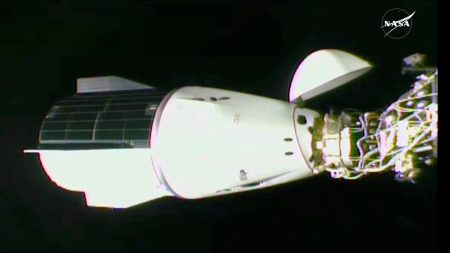Blue Origin Announces Major Layoffs Amidst Ambitious Space Exploration Plans
A New Era of Challenges for Blue Origin
In a surprising move, Blue Origin, the space exploration company founded by Amazon billionaire Jeff Bezos, has announced plans to lay off approximately 10% of its workforce. This decision affects more than 1,000 employees and comes just weeks after the company successfully debuted its first orbital rocket, New Glenn. The layoffs were revealed in an email to staff from Blue Origin CEO David Limp, who emphasized the need to streamline operations and realign the organization’s structure to focus on its core priorities.
The layoffs will primarily impact roles in engineering, research and development, program and project management, and various layers of management. Limp explained that the rapid growth of the company in recent years has led to increased bureaucracy and a loss of focus. He stressed that the restructuring is necessary to ensure the company remains agile and aligned with its strategic goals.
The Successful Debut of New Glenn: A Mixed Bag
The announcement of layoffs coincides with a significant milestone for Blue Origin: the successful debut flight of New Glenn. Launched last month, New Glenn is a powerful orbital rocket designed to carry heavy payloads to distant Earth orbits. The rocket performed flawlessly during its uncrewed maiden voyage, showcasing its capabilities in hauling satellites and other large spacecraft into space.
However, the mission was not without its challenges. The attempt to land the rocket’s first-stage booster, a crucial step in reducing costs and reusing hardware, was unsuccessful. This procedure, which SpaceX has mastered over the years, involves returning the rocket’s booster to Earth after launch to be refurbished and used again. While Blue Origin has yet to achieve this feat, the company remains committed to perfecting the technology.
Expanding Horizons with New Shepard
Blue Origin is not just focused on orbital launches. The company is also making strides in suborbital space tourism with its New Shepard rocket. Designed to carry paying customers on short, 10-minute journeys to the edge of space, New Shepard offers an exclusive experience for those willing to pay for a glimpse of the cosmos. With multiple successful missions under its belt, New Shepard has established Blue Origin as a key player in the burgeoning space tourism industry.
Despite these advancements, the layoffs indicate that Blue Origin is undergoing a period of strategic realignment. The company is in the process of finalizing its annual operating plan, which prioritizes ramping up manufacturing and increasing the frequency of its rocket launches. By streamlining its operations and reducing bureaucracy, Blue Origin aims to achieve greater efficiency and focus on its long-term goals.
The Broader Context: Competition and Challenges in the Space Industry
The layoffs at Blue Origin highlight the challenges faced by companies in the highly competitive and capital-intensive space industry. While the company has made significant strides in recent years, including the development of New Glenn and New Shepard, it must navigate the complexities of scaling operations and maintaining profitability.
The unsuccessful booster landing attempt also underscores the technical difficulties inherent in space exploration. Implementing reusable rocket technology is a costly and complex endeavor, and Blue Origin is still in the process of mastering this critical capability. While the company has shown resilience and innovation, the road ahead will undoubtedly require careful planning and resource management.
The Road Ahead for Blue Origin
In his email to staff, Limp did not link the layoffs to any specific project but emphasized the need for structural changes to ensure the company’s success. By thinning out management layers and refocusing on core priorities, Blue Origin aims to position itself for long-term growth and innovation.
The company’s annual operating plan will play a pivotal role in shaping its future. With a focus on ramping up manufacturing and increasing the pace of launches, Blue Origin is setting its sights on becoming a leading provider of space exploration services. While the layoffs are a setback for affected employees, they represent a strategic move to ensure the company remains competitive in an ever-evolving industry.
As Blue Origin continues to navigate the challenges of space exploration, its commitment to innovation and efficiency will be crucial in achieving its ambitious goals. Whether through the development of cutting-edge rockets like New Glenn or the expansion of its suborbital tourism program with New Shepard, Blue Origin is determined to leave its mark on the future of space travel.
For more updates on the latest developments in science and space exploration, sign up for CNN’s Wonder Theory newsletter. Stay informed about groundbreaking discoveries, technological advancements, and the fascinating stories shaping our understanding of the universe.
This summary provides a comprehensive overview of Blue Origin’s current situation, highlighting both its achievements and challenges. The company’s decision to lay off employees, while difficult, reflects its commitment to long-term success and innovation in the competitive space industry.









